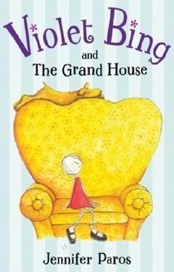In Our Own Way: Questions, Rules, & How We Make Ourselves Crazy
by Jennifer Paros
“Making the simple complicated is commonplace; making the complicated simple, awesomely simple, that’s creativity.”
The other day I wanted to exchange a piece of jewelry, and it had to be done by mail. I wanted to package it properly, spend the least amount of money possible on shipping, and be able to track its arrival. Those were my rules – all seemingly easy to follow. Yet my mind proceeded to engage in a remarkably convoluted and demanding thought process. I had in my possession a used small, bubble envelope, which had been cut off at one end. Would that be all right to reseal with tape? Would it leave enough space on the envelop for the address and for the post office to process? Should I buy a new envelope? Where would I get said envelope? Do they have them at the post office? Would I be better off buying it at the grocery store? During the pandemic, do I really want to spend extra time at the post office buying an envelope and addressing it there? Can I really get tracking with first class or will I have to send it priority? How long will this outing take?
This mental storm continued until I felt paralyzed. I even cried out, “Why is this so COMPLICATED?” As I observed the battlefield of my overwrought mind, I had a new thought: that I should let myself figure it out as I go. I realized I didn’t need to be able to answer all the questions, nor follow any self-inflicted rules on how things had to be in order to go forward. I went with the inclination to pick up a new envelope at the store and reminded myself I would figure it out as I went. The jail door swung open. I suddenly felt free. I had stepped out of insanity.
This is the story of How We Make Ourselves Crazy and how we can deliberately step out of the crazy. And that can apply to everyone in some way – even those able to mail things with ease. My example, in its smallness, is useful because it makes the crazy easier to see, whereas when we’re spinning out over something seemingly big and important, we feel justified in losing our minds. But it’s the same process of stepping into and out of imbalance – no matter the assigned significance of the situation.
The recipe, or how-to, for making myself crazy requires that I inadvertently build an obstacle course to whatever it is I want. The obstacles are constructed of two components: questions I can’t answer, and rules I must follow. These form the projected obstacles I believe I must address in order to get what I want.
“You are far too smart to be the only thing standing in your way.”
When I’m writing, I might accidentally establish a mental obstacle course to finishing my piece. I can do this is by demanding answers to questions like: How will it all come together? And Will it be good? Often, I have only a direction or small idea I want to pursue. If I insist I need those answers, I start feeling shaky, maybe even convinced I can’t go forward without them. If I have rules like: This can’t take a long time, and I can’t write anything “bad” – not only am I now under pressure, so that if I slow down, or write something that doesn’t work (and I always do), I might think of myself as failing, which only makes everything harder.
We don’t need all the answers in order to go forward; we only need the spark of an idea and our connection to it. That spark won’t usually, immediately lead to everything we want, but it’s enough to get us out the door and on our way.
Harold Arlen, the composer of Somewhere Over the Rainbow and many other great songs, once explained his creative process this way: “I drift, wait, and obey.” He was referring to an internal focus wherein he would wander off the course of regular thought (drift), listen for an idea and a direction (wait), then follow that direction (obey). His biographer Walter Rimler describes Arlen as believing that the songs were “given to him.” He wasn’t trying to answer all questions or follow unnecessary rules – his focus was on receiving.
Life and art can get complicated, even crazy-making, when we believe we need to adhere to a particular path or have all the answers. But the moment we give ourselves permission to figure it out as we go and follow a direction set from within, the self-created obstacle course disappears and we are truly free to go forward.
Jennifer Paros is a writer, illustrator, and author of Violet Bing and the Grand House (Viking, 2007). She lives in Seattle. Please visit her website.

